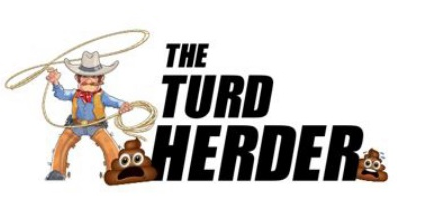It's common to have septic and sewer questions. Here's some answers that might be helpful to you.
A Homeowner’s Guide to Septic Systems
Please click here to access the EPA’s Homeowner’s Guide to Septic Systems.
Who maintains my septic system?
As a homeowner, you’re responsible for maintaining your septic system. By maintaining your septic system you are protecting your investment in your home. Did you know you should periodically inspect your system and pump out your septic tank?
If properly designed, constructed and maintained, your septic system can provide long-term, effective treatment of household wastewater. If your septic system isn’t maintained, you might need to replace it, costing you thousands of dol- lars. A malfunctioning system can contaminate groundwater that might be a source of drinking water. And if you sell your home, your septic system must be in good working order.
How does my septic system work?
A typical septic system has four main components: a pipe from the home, a septic tank, a drainfield, and the soil. Microbes in the soil digest or remove most contaminants from wastewater before it eventually reaches groundwater. All of your household wastewater exits your home through a pipe to the septic tank.
What is a septic tank?
The septic tank is a buried, watertight container typically made of concrete, fiberglass, or polyethylene. It holds the wastewater long enough to allow solids to settle out (forming sludge) and oil and grease to float to the surface (as scum). It also allows partial decomposition of the solid materials. Compartments and a T-shaped outlet in the septic tank prevent the sludge and scum from leaving the tank and traveling into the drainfield area. Screens are also recommended to keep solids from entering the drainfield.
Newer tanks generally have risers with lids at the ground surface to allow easy location, inspection, and pumping of the tank.
To prevent buildup, sludge and floating scum need to be removed through periodic pumping of the septic tank. Regular inspections and pumping are the best and cheapest way to keep your septic system in good working order.
Why should I maintain my septic system?
When septic systems are properly designed, constructed, and maintained, they effectively reduce or eliminate most human health or environmental threats posed by pollutants in household wastewater. However, they require regular maintenance or they can fail. Septic systems need to be monitored to ensure that they work properly throughout their service lives.
Saving money
A key reason to maintain your septic system is to save money! Failing septic systems are expensive to repair or replace, and poor maintenance is often the culprit. Having your septic system inspected regularly is a bargain when you consider the cost of replacing the entire system. Your system will need pumping depending on how many people live in the house and the size of the system. An unusable septic system or one in disrepair will lower your property value and could pose a legal liability.
Protecting health and the environment
Other good reasons for safe treatment of sewage include preventing the spread of infection and disease and protecting water resources. Typical pollutants in household wastewater are nitrogen, phosphorus, and disease causing bacteria and viruses. If a septic system is working properly, it will effectively remove most of these pollutants.
With one-fourth of U.S. homes using septic systems, more than 4 billion gallons of wastewater per day is dispersed below the ground’s surface. Inadequately treated sewage from septic systems can be a cause of ground-water contamination. It poses a significant threat to drinking water and human health because it can contaminate drinking water wells and cause diseases and infections in people and animals. Improperly treated sewage that contaminates nearby surface waters also increases the chance of swimmers contracting a variety of infectious diseases. These range from eye and ear infections to acute gastrointestinal illness and diseases like hepatitis.
What can make my system fail?
If the amount of wastewater entering the system is more than the system can handle, the wastewater backs up into the house or yard and creates a health hazard.
You can suspect a system failure not only when a foul odor is emitted but also when partially treated wastewater flows up to the ground surface. By the time you can smell or see a problem, however, the damage might already be done.
By limiting your water use, you can reduce the amount of wastewater your system must treat. When you have your system inspected and pumped as needed, you reduce the chance of system failure.
A system installed in unsuitable soils can also fail. Other failure risks include tanks that are inaccessible for maintenance, drain fields that are paved or parked on, and tree roots or defective components that interfere with the treatment process.
Septic System Do's and Don'ts
Do’s
- Check with the local regulatory agency or inspector/pumper if you have a garbage disposal unit to make sure that your septic system can handle this additional
- Check with your local health department before using Commercial septic tank additives do not eliminate the need for periodic pumping and can be harmful to the system.
- Use water efficiently to avoid overloading the septic Be sure to repair leaky faucets or toilets. Use high-efficiency fixtures.
- Use commercial bathroom cleaners and laundry detergents in Many people prefer to clean their toilets, sinks, showers, and tubs with a mild detergent or baking soda.
- Check with your local regulatory agency or inspector/pumper before allowing water softener backwash to enter your septic
- Keep records of repairs, pumpings, inspections, permits issued, and other system maintenance
- Learn the location of your septic Keep a sketch of it with your maintenance record for service visits.
- Have your septic system inspected and pumped as necessary by a licensed inspector/contractor.
- Plant only grass over and near your septic Roots from nearby trees or shrubs might clog and damage the drainfield.
Don’ts
- Your septic system is not a trash Don’t put dental floss, feminine hygiene products, condoms, diapers, cotton swabs, cigarette butts, coffee grounds, cat litter, paper towels, latex paint, pesticides, or other hazardous chemicals into your system.
- Don’t use caustic drain openers for a clogged Instead, use boiling water or a drain snake to open clogs.
- Don’t drive or park vehicles on any part of your septic Doing so can compact the soil in your drainfield or damage the pipes, tank, or other septic system components.
Payment
We can accommodate several types of payment.
- Cash
- Check
- Credit Card
- ACH Bank Transfer

